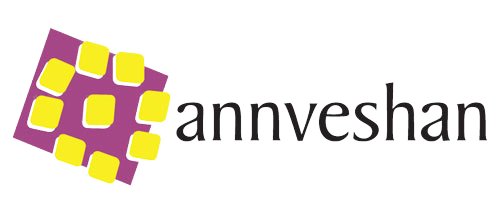What Is Estate Planning?
Estate Planning is an integral part of personal finances, it is a process where arrangements concerning the transfer/devolvement of a person’s assets to his / her legal heirs or other entities are made. With the help of a financial advisor practicing estate planning who will help you understand the nitty gritties, modalities & legal aspects of estate planning; and you will be in a position to make the best decision for you and your family in order to achieve or more of the following benefits from estate planning:
- Bring in clarity on amongst the family members on
- Who are eligible? Do you want to restrict to lineage? Is extended family eligible? Any NGO eligible to share in the assets?
- how & when the beneficiaries get ownership/right over the assets?
- When the beneficiaries (family members) get the control over the assets
- Appoint caretakers who take care of assets post your lifetime, as the next generation is too young to take care of the assets or are occupied in their careers/businesses / endeavours or are residing overseas.
- De-link personal assets from business matters.
- Prevent disputes from taking place amongst the family members
- ensure assets are transferred to beneficiaries in a hassle-free manner.
- Create corpus & identify caretakers for differently-abled members in the family.
The Important Structures Covered Under Estate Planning:
1. Will
A will is a simple pen to paper document which states the distribution of a person’s wealth. It only comes into effect after the death of a person and it is an integral aspect of determining the distribution of your estate in order to avoid future family disputes as in the absence of a will, the assets are distributed according to predetermined laws.
2. Trust
A trust is a deed created where the assets of the owner are transferred to the trustee to hold for the sake of the beneficiaries. It comes into existence during the lifetime of the creator and can be structured in a well-planned way to address present and future circumstances.
3. Gift
In a gift deed, the transfer of assets takes place immediately and the donor will not be able to change his mind and claim ownership from the donee once the assets have been transferred.
4. Life Insurance
When it comes to Life Insurance, the nominee would be able to access the insurance after filling out basic paperwork as compared to the other tools where more court orders would need to be obtained leading to more time being taken in releasing the assets.
5. Family Settlement
A family agreement can be defined as ‘An agreement among members of the same family, intended to be generally and reasonably for the family’s benefit, either by compromising doubtful or disputed rights or by preserving the family property or its peace and security by avoiding litigation or by saving its honour’. The purpose of a family settlement is to avoid disputes, it is an understanding, written or verbal, regarding the family assets and consists of fewer legal requirements than a will.
6. Care For Differently Abled Members
A customised estate plan is essential to ensure that differently abled family members will be provided care both financially and emotionally. By creating a well-planned trust, parents can secure the future of their children.
Each one of these tools under Estate Planning comes with its own tax implications, you can seek professional financial advice to ascertain what will work best for you by determining the objective of you and your family’s needs.
How Annveshan Can Help?
At Annveshan we Review, Evaluate and Execute your estate planning with the intention to create a Private Trust for you and your family for the purpose of:
- Wealth protection
- Secure family’s interests
- Financial needs during old age
- Smooth succession of assets to next generation
- Other aspects, if any.
By understanding the objective of setting up your family trust we require the following personal and family details:
- Residential status and citizenship of the client and his family and likely changes in the near future.
- Details of assets held in India and outside India, if any.
- Association with any partnerships, privately held companies, private trusts & others. economic / beneficial interests held.
- Tax attributes such as carry forward of losses, foreign tax credits and related aspects.
- Any other information that may be relevant for executing the scope of this engagement.
We evaluate trust structures from Personal and family requirements as well as advise and assist in deciding various matters of the trust. We specifically evaluate the following:
- Revocable or irrevocable trust
- Specific or discretionary trust
- What Type of Assets to be transferred to Trust
- Who all should be the beneficiaries
- What rights beneficiaries should have and when
- Who should be the Trustees
- Trustees powers, rights and obligations
- Termination of trust and what happens to Trust Funds at termination
- Period of Trust
- Letter of Wishes
- Trust Administration
- Distribution / Usage of Trust Income on regular basis
- Distribution / Usage of Trust properties
- Advise on creating beneficial interests for overseas beneficiaries.
- Advise on how the assets situated overseas can be made part of trusts in India.
Our evaluation would include the following which is critical for the transition of the assets to the Trust:
- Modality to be adopted in implementing the options discussed.
- Income tax implications on transition of assets.
- Stamp duty implications.
- Other tax and regulatory implications, if any.
- Required formalities to be complied with.
- Discussion on identifying & appointing the trustees to manage the trusts during the lifetime/post the lifetime of Settlors, including identification of corporate trust management companies, if required.
- Arrive at the final plan of action to be executed to achieve the desired structure.
Executing the necessary documents/process that are required for movement of assets with assistance in drafting / review of the drafts of Trust deeds and other relevant documents:
- Registration of Trust deed & any other documents.
- Support in Bank account opening.
- Support in moving the assets to the Trust.
- Support in undertaking KYC norms for the purpose of holding the investments, Demat accounts, Mutual funds etc.
Our evaluation covers the following statutes:
- Indian Trust Act
- Income tax Act
- Exchange control regulations
- Companies Act
- Stamp duty Regulations & any other related laws
Ease the process of estate planning for you and your family, get in touch with us to avail the services of our expert financial advisors and customise your estate planning.




